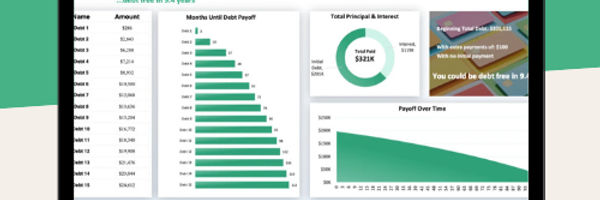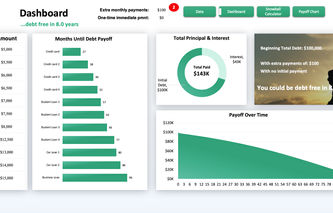The 800 credit score is like the holy grail of credit ratings—only 23% of Americans can boast having FICO® Scores of 800 or above.
If you’re part of this elite club, congratulations. You’ve proven to lenders that you’re a pro when it comes to managing credit.
But if your less-than-perfect credit score is the first place your mind goes to when you hear Paul Carrack sing “How long has this been going on”—don’t sweat it.
This guide will break down what having an 800 credit score means and how you can reach this top-tier credit status.
And you never liked that song anyway—
This article will show you:
How long it’ll take you to get an 800 credit score.
How you can benefit from an exceptional credit score.
Key tips to increase your credit score to 800.
Read more:
How Long Does It Take to Build an 800 Credit Score?
It can take several years or more for you to build an 800 credit score depending on your starting point. You can achieve this score by maintaining a positive payment history over a significant period and managing various credit accounts, such as credit cards and loans. A strong credit mix includes a few major credit cards, a real estate loan, and another type of installment loan.
Another key factor that determines your credit score is the duration of your credit history. On average, members of the 800 Club have been using credit for almost 22 years. Even the Millennials have an average of over 14 years of credit history. This suggests that credit-savvy parents often add their kids’ names as authorized users on credit cards from a very young age, potentially boosting their credit scores early on.
And how long does it take to get to an 800 credit score?
Here’s a table with approximate timelines:
INITIAL CREDIT SCORE | AVERAGE TIME TO REACH 800 CREDIT SCORE | AVERAGE TIME TO REACH 850 CREDIT SCORE |
|---|---|---|
0 | 1–1.5 years | 1.5+ years |
300 | 3–4 years | 4+ years |
350 | 2.5–3.5 years | 3.5+ years |
400 | 2–3 years | 3+ years |
450 | 1.8–2 years | 2+ years |
500 | 1.5–1.8 years | 1.8+ years |
550 | 1.3–1.5 years | 1.5+ years |
600 | 1–1.3 years | 1.3+ years |
650 | 1–1.2 years | 1.2+ years |
700 | 6–9 months | 9 months to 1.2 years |
750 | 3–6 months | 6–9 months |
Note: These figures are estimates and vary depending on several financial factors.
800 Credit Score Benefits
What exactly are the perks of being in the “800 club?” Is this something you should strive for?
We’re going to point out the key benefits of having an 800 credit score to help you answer that—
Better approval rates
No matter what kind of credit you’re applying for, it’s nice to know that your 800 credit score probably beats any lender’s minimum requirements.
This high score proves you’re trustworthy and shows lenders you’ll repay the debt.
As long as you meet other criteria like having a stable income and employment, lenders will likely always approve your application.
Qualify for lower interest rates
Your credit score plays a huge role in deciding the interest rate for loans.
If you’ve got an 800 credit score, it’s easier for you to bag lower interest rates and save a ton of cash throughout the life of the loan.
The real difference is noticeable with bigger debts (like mortgages and auto loans) which you’ll be paying off for quite some time. So having that top-notch credit score can make a big impact on your wallet.
Better credit card offers
You want nothing more than to dodge annoying interest charges when paying off your credit card debt each month.
With an impressive 800 credit score, you can get yourself the best credit cards that offer a 0% APR on purchases and balance transfers.
Having one of these cards in your pocket lets you pay off a balance gradually without having to deal with those pesky interest charges.
An 800 credit score can get you the Amex Blue Cash Preferred card, Synchrony Premier World Mastercard, and even the Capital One Venture X Rewards card.
Higher credit limits
If you’ve got an 800 credit score, you’ll probably get higher credit limits.
This not only increases your purchasing power but also helps you keep your credit utilization ratio low.
For instance, if your credit limit is $1,000 and you spend $400, your credit utilization ratio is 40%.
But if your credit limit increases to $2,000 and you maintain the same expense of $400, your credit utilization ratio will decrease to 20%.
A credit utilization rate of less than 30% helps you maintain a stellar credit score.
How to Increase Credit Score to 800: Factors Affecting Credit Scores
We bet you’re wondering what factors you should focus onto get an 800 credit score.
Here’s the full breakdown:
Payment history: Making your credit account payments on time can help build your scores. However, missing payments, having an account sent to collections, or filing for bankruptcy can harm your credit.
Credit usage: The number of accounts with balances, the amount you owe, and your credit utilization rate (the percentage of available credit you’re using) all play a role here.
Length of credit history: This category tracks the average age of all your credit accounts, as well as the age of your oldest and newest accounts.
Types of accounts: Also known as “credit mix,” this category looks at whether you’re handling both instalment accounts (like car loans, personal loans, or mortgages) and revolving accounts (such as credit cards and other lines of credit). Showing responsible management across both types of accounts can benefit your scores.
Recent activity: This considers whether you’ve recently applied for or opened new accounts.
FICO and VantageScore are two popular credit-scoring companies that take different approaches to explaining the relative importance of these categories.
Here’s how they assign scores:
FICO® score factors
FICO uses percentages to represent how important each category is.
But the exact percentage breakdown FICO uses to figure out your credit score will depend on your unique credit report.
FICO considers scoring factors in the following order:
Payment history: 35%
Amounts owed: 30%
Length of credit history: 15%
Credit mix: 10%
New credit: 10%
VantageScore factors
VantageScore lists the factors by how influential they typically are in assigning a credit score.
VantageScore looks at the factors this way:
Total credit usage, amounts owed, and available credit: Extremely influential
Credit mix and experience: Highly influential
Payment history: Moderately influential
Length of credit history: Less influential
New credit: Less influential

Lay out your credit card debt with the minimum payments and interest to see how long it will take to pay off!
What you will get:
Interactive dashboard
Customizable to your needs
Stay on track with charts and graphs
Suitable for up to 16 or 32 debts!

Top Tips to Get That 800 Credit Score
So, the “exceptional credit club” is the place to be. But how do you get there?
Here are some key tips to get an 800 credit score:
Monitor your credit
If you’re looking for ways to increase your credit score, it’s probably not the best right now—
That’s why it’s crucial to keep an eye on it regularly and stay on your financial A-game. Want to check your credit without spending a dime? Credit Karma is a great option.
You can check which of the below categories you fall into:
Exceptional:800–850
Very Good:740–799
Good:670–739
Fair:580–669
Poor:300–579
Pay on time
If you’re late on a payment by just 30 days, it can wreck your credit score and haunt your credit report for a whopping seven years.
So, if you think you might not make a payment on time, it’s best to contact your creditors right away and see if they can cut you some slack or offer any hardship options.
Keep your credit card balances low
Your credit utilization rate is a big deal—it’s the percentage of total available credit you’re currently using.
Having a low utilization rate (less than 30%) can do wonders for your credit scores.
Request a credit limit increase
If you’ve been using your credit responsibly, you might want to give your credit card company a shout and see if they can hook you up with a higher credit limit.
It could help bring down your credit utilization ratio, as long as you don’t go on a spending spree.
Get a credit card that reports to all major credit bureaus
A credit card can be the perfect tool to build credit quickly. Use it correctly and you’ll see your credit score go up in no time.
Responsibly using a credit card is one of the quickest ways to repair bad credit. Use your card to cover only expenses that you’ve budgeted for and then pay it off on time, every time.
Brooklyn Lowery Editorial Director at CardRatings.com
How long does it take to get a credit score after getting a credit card?
It usually takes around six months of using your credit card regularly to build a credit score from scratch.
Of course, you’ll have to do this responsibly—meaning you have to make payments on time, keep the utilization ratio at bay, and not get into more debt.
Here’s how you can build credit with a credit card:
Get a credit card designed for poor credit.These cards typically have higher interest rates and lower credit limits, but they can help you rebuild credit.
Keep your credit utilization low. This means using no more than 30% of your available credit at any given time.
Monitor your credit report regularly to make sure account information is accurate. If you notice any errors or discrepancies, dispute them with the credit reporting agencies.
Want to get your hands on a rewards credit card but only have a fair or average credit score? The Capital One Quicksilver One credit card may be the perfect pick for you.
Avoid too many credit inquiries
Applying for new credit can trigger a hard credit inquiry, which might ding your credit scores a bit.
Usually, it’s not a big deal, but if you apply for many credit cards or loans within a short period, it can cause a more significant drop in your scores.
Keep in mind that hard inquiries can happen when you apply for the following:
Credit card
Loan or mortgage
Cell phone plan
Apartment lease
Job
Pay off outstanding debts
Your payment history plays a big role in determining your credit score. When you pay off debts, it shows that you’re good with money and can be trusted to pay back what you owe.
This positively impacts your credit score.
Having trouble figuring out where to begin? Check out debt repayment strategies like the debt snowball method and debt avalanche method to get started.
Also, check out our free credit card payoff calculator 👇

Lay out your credit card debt with the minimum payments and interest to see how long it will take to pay off!
What you will get:
Interactive dashboard
Customizable to your needs
Stay on track with charts and graphs
Suitable for up to 16 or 32 debts!

Take out a small loan
Have you been wanting to remodel your kitchen or fireplace? Consider taking out a small personal loan.
But didn’t we just say you should get out of debt?
Well yes, you should be avoiding borrowing a huge amount—but applying for a small loan and paying it back on time can help you build credit quickly.
Become an authorized user
If you have a family member or friend with a good credit score, you can ask them to add you as an authorized user on their credit card.
It’s a great way to build credit without having to go through the hassle of applying for your own card.
This trick works wonders, especially for teens. Starting early means you’ll have a longer credit history, leading to a better credit score in the long run.
Now, here’s the big question: How much will your credit score go up as an authorized user? It all depends on the credit history of the person whose card you’re piggybacking on.
If they have a stellar credit history and always make payments on time, your score could see a significant boost. On the flip side, if their credit history is a bit rocky, it could hurt your score. So choose wisely.
But what’s the minimum age for a credit card?
Most credit card issuers will let you become an authorized user at age 13. But some can get you started just after you’re born.
Leave old accounts open
Your credit score is influenced by how long you’ve had credit. It’s a good idea to keep older accounts open, even if you’re not actively using them.
This strategy can boost the average age of your credit accounts.
Key Takeaways
Having an 800 credit score means you’ve done everything possible to prove your creditworthiness, and most lenders view you as a safe bet.
You can qualify for preferred interest rates on mortgages, car loans, and credit cards.
With an 800 credit score, you can even contact your existing lenders and credit card issuers to ask for a better rate.
Thankfully, many lenders consider 760 the cut off for excellent credit—a credit score above that number will probably get you the same benefits as an 800 credit score.


.jpg)



